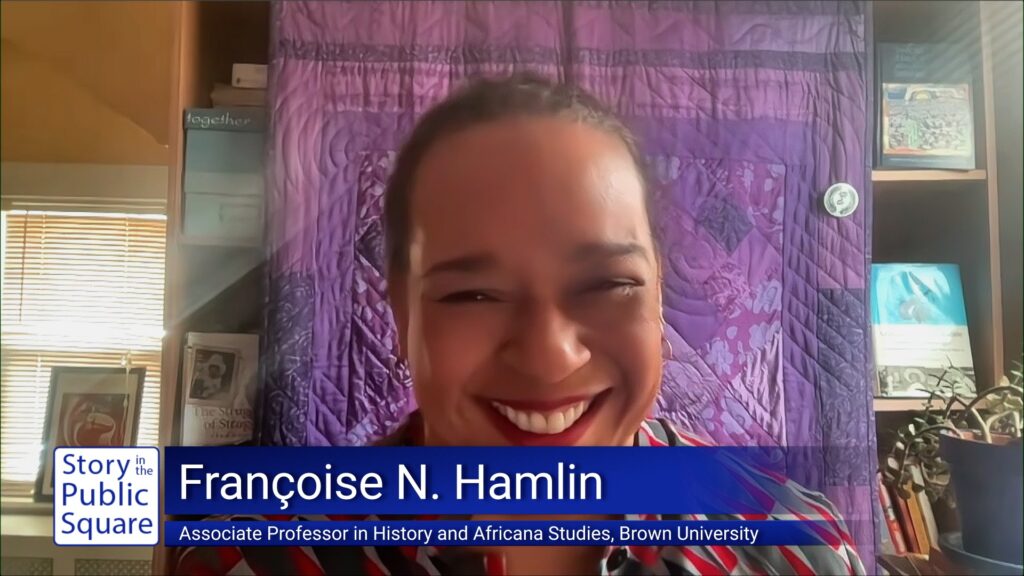Analyzing the History of Race Relations and its Contemporary Implications with Françoise N. Hamlin
Air Dates: February 19-25, 2024
To some, the civil rights era seems like ancient history, but to others, it’s within living memory. Françoise N. Hamlin helps put the history of the era into a broader context about who we are as a people and what it means to be an American.
Hamlin is the Royce Family Associate Professor in history and Africana studies at Brown University. Prior to joining the faculty at Brown, Hamlin was a fellow at the University of Michigan, Harvard University, the Radcliffe Institute, and the Andrew Carnegie Foundation. She also spent several years as an Assistant Professor of History at the University of Massachusetts, Amherst. Hamlin is the author of “Crossroads at Clarksdale: The Black Freedom Struggle in the Mississippi Delta after World War II,” winner of the 2012 Berkshire Conference of Women Historians Book Prize and the 2013 Lillian Smith Book Award. She also authored “These Truly Are the Brave: An Anthology of African American Writings on Citizenship and War” and republished the previously self-published 1975 autobiography of Mississippi civil rights activist, Vera Pigee, “The Struggle of Struggles.” Her co-edited anthology, “From Rights to Lives: The Evolution of the Black Freedom Struggle,” will be published in spring 2024.
On this episode of “Story in the Public Square,” Hamlin sits down to discuss the civil rights movement and modern America, reflecting on where we’ve come from and where we’re headed with race relations. Hamlin says education is the most powerful tool, arguing that “learning about the past isn’t about assigning guilt, it’s about acknowledging the past, understanding it, and making decisions moving forward not to repeat it.” She goes on to discuss systemic racism in the United States, saying “I think that systemic racism hasn’t gone away, it’s reinforcing itself. And until that is dismantled, things won’t change fundamentally. The system will always try and correct itself and sustain itself.” She concludes that to address these issues, it is essential “for all history to be taught and to be taught sensitively and to be taught correctly.”
“Story in the Public Square” broadcasts each week on public television stations across the United States. A full listing of the national television distribution is available at this link. In Rhode Island and southeastern New England, the show is broadcast on Rhode Island PBS on Sundays at 11:00 a.m. and is rebroadcast Thursdays at 7:30 p.m. An audio version of the program airs Saturdays at 8:30 a.m. and 7:30 p.m. ET, Sundays at 4:30 a.m., 2:30 p.m., 9:30 p.m. ET on SiriusXM’s popular P.O.T.U.S. (Politics of the United States), channel 124. “Story in the Public Square” is a project of the Pell Center at Salve Regina University. The initiative aims to study, celebrate and tell stories that matter.

